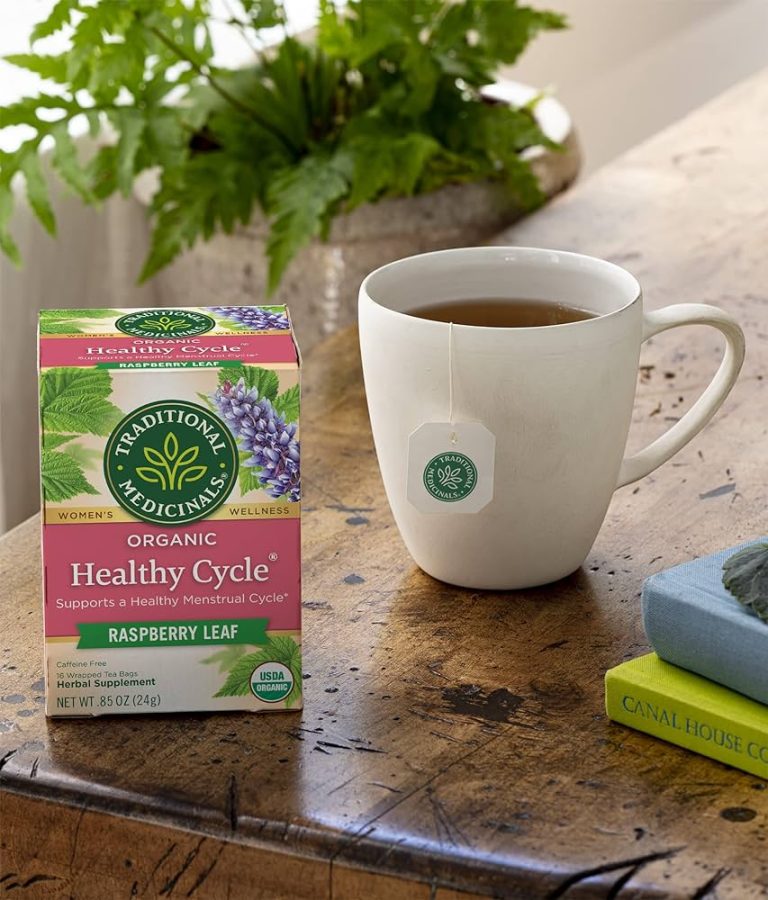
Is Drinking Thai Tea Healthy
Is Drinking Thai Tea Actually Healthy?
With its fragrant orange hue and sweet, creamy flavor, Thai tea has become a favorite Asian drink around the world. But many wonder if regularly sipping this popular beverage supports good health or leads to nutritional downsides.Is Thai tea healthy?
Let’s objectively break down Thai tea’s ingredients, nutritional profile, and potential benefits versus risks to determine if it deserves a spot in your beverage rotation.
What is Thai Tea?
Thai tea refers to a flavored tea recipe commonly consumed in Thailand. It features distinctive ingredients that give Thai tea its signature color, taste and texture.
Here are the key components that go into a typical cup of Thai tea:
- Black tea – Brewed loose leaf or tea bags provide the base.
- Star anise – This star-shaped spice infuses a licorice-like flavor.
- Cinnamon – A touch of cinnamon adds warmth.
- Tamarind – Tamarind paste lends a tangy, fruity taste.
- Sugar – Lots of sugar makes Thai tea very sweet.
- Evaporated milk – Milk is simmered until thick, then mixed into the tea.
- Ice – Thai tea is served chilled over ice.
You’ll immediately notice two potential downsides for health – loads of sugar and evaporated milk containing saturated fat. Let’s explore how these and the other ingredients impact nutritional value.
Nutrition Facts of Thai Tea
Thai tea’s nutritional profile offers a mix of pros and cons based on the ingredients used to make it.
Here are the approximate nutrients found in one 12 ounce glass of Thai tea with evaporated milk:
- 140 calories
- 2g fat
- 30g carbs
- 14g sugar
- 2g protein
- Vitamin A – 10% RDI
- Calcium – 15% RDI
- Vitamin D – 15% RDI
Amounts vary somewhat depending on exact recipe, but a typical Thai tea contains high amounts of carbohydrates and sugar due to the sweetened black tea base and condensed milk.
However, the milk also provides a dose of calcium, vitamin A, and vitamin D. So while sugar content is high, Thai tea does supply some beneficial vitamins and minerals.
is thai tea healthy?Comparing nutrition facts to your daily recommended values gives helpful context:
- Sugar – 14g provides ~30% of American Heart Association’s 25g/day limit for women, 20% of the 36g/day limit for men.
- Saturated Fat – 2g makes up ~10% of daily 20g max recommended intake.
- Calcium – 15% of daily 1,000mg recommendation.
- Vitamin A – 10% of 700-900 IU advised daily total.
- Vitamin D – 15% of 600-800 IU recommended daily amount.
As you can see, a single glass of Thai tea makes a significant contribution to your daily recommended sugar intake. But it also provides useful amounts of calcium and vitamins A and D.
This mix of pros and cons means Thai tea may deserve a occasional spot in your beverage lineup – if you account for that sugar content in the rest of your diet.
Potential Health Benefits of Thai Tea Ingredients
Despite the high amount of sugar, research shows the individual ingredients in Thai tea may offer advantages:
Black Tea
- Rich in antioxidants like flavonoids, theaflavins, thearubigins
- May protect heart health, enhance brain function, reduce risk of stroke, strengthen immunity
Star Anise
- Contains anethole, shown to have antimicrobial, anti-inflammatory, and antioxidant effects
- May aid digestion, bronchitis, pain relief
Cinnamon
- Has antioxidant, anti-inflammatory, and antimicrobial effects
- May improve heart health markers, blood sugar control, neurological function
Tamarind
- High in polyphenols that exhibit antioxidant, anti-inflammatory, and antimicrobial properties
- Linked to decreased blood pressure and improved cholesterol
Milk
- Source of protein, calcium, phosphorus, vitamins A and D
- Calcium vital for bone health; vitamin D aids calcium absorption
So despite the drawback of added sugar, Thai tea provides a range of spices, fruit, and milk with established health benefits. Consumed in moderation, it can potentially be part of a healthy, balanced diet.

Potential Health Risks of Drinking Thai Tea
However, regularly drinking Thai tea in excess may lead to some adverse outcomes over time:
- Weight gain – At 140 calories and 30g carbs per 12oz serving, excess Thai tea could contribute to obesity.
- Diabetes – Frequent blood sugar spikes from sugary drinks heighten diabetes risk.
- Heart disease – Heavy sugar consumption strains the cardiovascular system.
- Tooth decay – Sugar feeds cavity-causing bacteria in dental plaque.
- Inflammation – Strong links exist between added sugars and systemic inflammation.
- Fatty liver disease – Excess fructose from sugar is associated with non-alcoholic fatty liver.
- Acidity – The acidic nature of tea may aggravate digestive issues with frequent high consumption.
- Milk allergy – The dairy in Thai tea poses problems for those with milk allergies or lactose intolerance.
So while the ingredients in Thai tea may support wellness, overdoing servings – especially of the sweetened variety – could counteract benefits. Moderation is key.
Tips for Enjoying Thai Tea More Healthfully
Here are some suggestions to help keep your Thai tea habit healthier:
- Size down – Opt for 8-10oz pours instead of mega 16-20oz cups.
- Halve sugar – Request 50% less sugar or add your own to control level.
- Swap sweeteners – Try monk fruit or stevia instead of sugar.
- Use skim milk – Go skim instead of evaporated to cut saturated fat.
- Boost nutrition – Fortify with extra cinnamon, turmeric, ginger.
- Dilute with water – Cut sweetness by adding water or sparkling water.
- Drink daily limit – Keep intake to an occasional treat, not a daily drink.
With some tweaks, it’s possible to enjoy this tasty tea beverage while minimizing sugar and saturated fat pitfalls.

Is Thai Tea Good For You?
So, is Thai tea ultimately a healthy or unhealthy drink choice?
The answer is…it depends.
Enjoyed occasionally, Thai tea can be part of a balanced diet. The spices, tea, and milk provide useful antioxidants, vitamins, and minerals. Just be cautious of added sugars and saturated fats by choosing healthier preparation methods.
Consumed daily in large amounts – especially of the full sugar variety – Thai tea’s downsides likely outweigh benefits. The high calories, carbs, and sugar load could contribute to chronic disease.
In general, healthier everyday beverage choices are:
- Plain water
Unsweetened tea
Black coffee
Sparkling water
Green tea
Low-fat milk
Save sweetened Thai tea as an occasional treat, and opt for lower sugar versions. This allows you to enjoy this distinctive Asian drink while avoiding pitfalls from excessive consumption.
Overall, traditional Thai tea blends nutrition pros and cons. With thoughtful moderation and smart preparation adjustments, Thai tea can potentially fit into an otherwise balanced, healthy lifestyle.
:max_bytes(150000):strip_icc()/thai-iced-tea-ft-blog0417-27cb827101d34b41bd396f07c4a39877.jpg)


